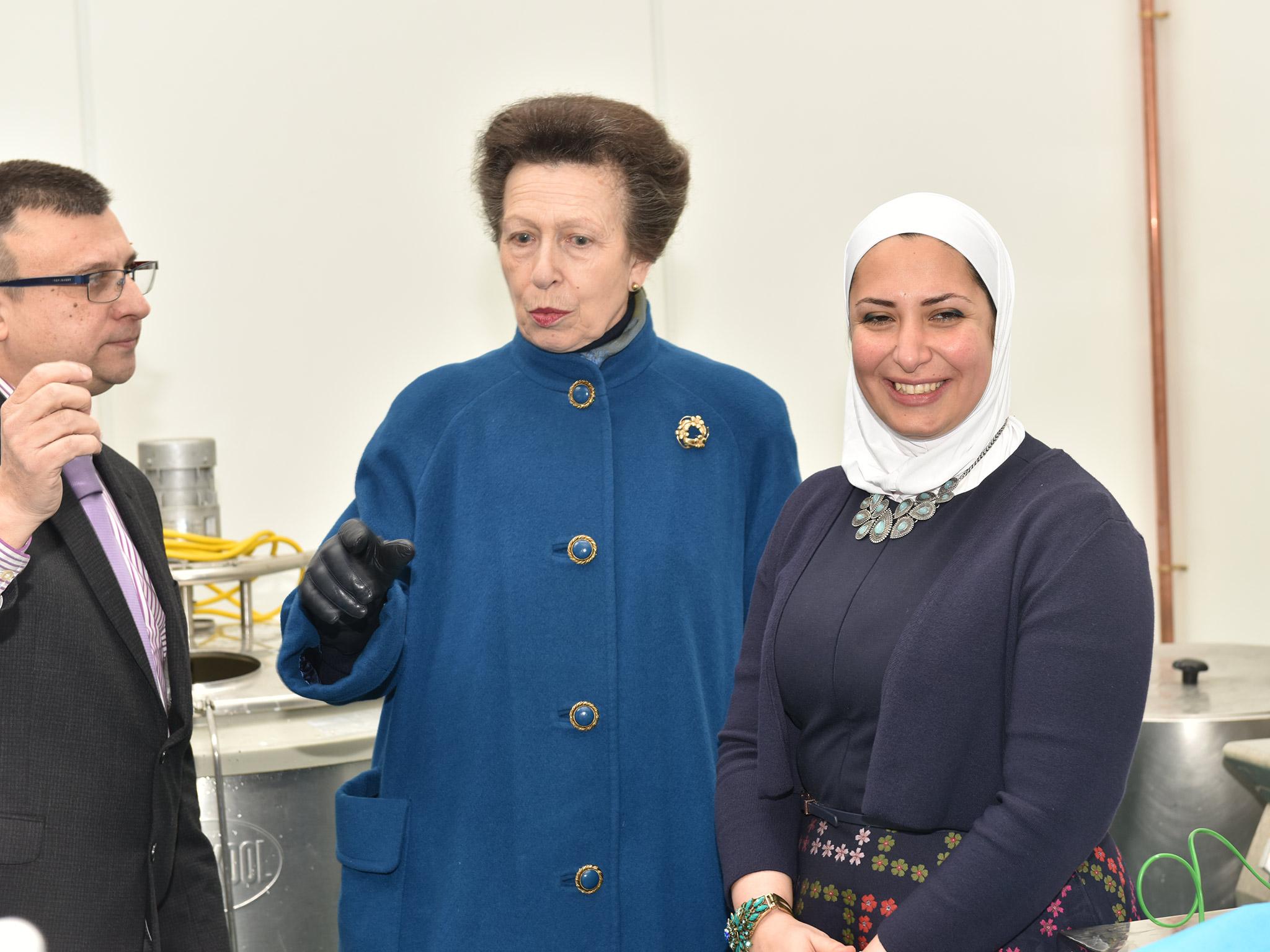Meet the Syrian family who fled civil war and now make halloumi in Yorkshire
When Razan Alsous couldn’t find halloumi in Yorkshire and struggled to secure a job, she put two and two together

In Syria, salty halloumi, or hallum, cheese is eaten at breakfast time, with fresh olives, strained labneh yoghurt, stuffed vegetables and bread. When Razan Alsous, her husband and three children fled the civil war in their country for Yorkshire five years ago, it was one of the many things she missed about her old home in her new one.
“When I came here to the UK halloumi wasn’t always available. So I start to make the cheese for my family,” Alsous, 33, tells The Independent. In Syria, Alsous had gained a pharmacy degree and her husband was an electronic engineer and business owner. But in the UK, they struggled to find jobs.
Soon, the breakfast staple became a lifeline as she realised she could turn the moreish cheese she was making using local, Yorkshire milk into a business. With a £2,500 loan from the Local Enterprise Agency, Alsous was able to launch Yorkshire Dama Cheese in 2014. Since then, Dama has been decorated with awards including the World Cheese Award Gold Prize 2016, shortlisted for the best cheese at the 2015 Delicious Yorkshire food festival, and nominated by former Prime Minister David Cameron for recognition on International Women’s Day 2015.
“It is not easy to resettle in a new place when you didn’t plan to do so. I needed to start a new life in a place where I don’t have any friends, family or relation,” says Alsous. And Dama has allowed her to do that.
Considering the current political climate and Islamophobia, was she fearful she wouldn’t be accepted?
“I didn’t think I would have a culture shock, because people in the UK have things in common with people in Damascus,” Alsous says. “We both live in a country which cares about heritage and has history. So when I came here I found the lifestyle is not too far from the way I used to live, and I’ve been accepted by the community and had support for my business.”
Of course, escaping war and watching one’s country fall to its knees from afar isn’t easy, and nor is trying to form a new life from nothing.
“When I think about balancing my life between my kids, my home and my business, sometimes that can be tough,” Alsous says. “Especially when my kids want to spend time together as a family. Most weekends we are at farmers markets and food festivals. But I always try to explain to them that the hard work will pay off in the end.”
She adds: “Having my business recognised by Princess Anne was the proudest moment I’ve had and meeting her in person has inspired me a lot.”
So how do you make an award-winning halloumi?
Describing the process used by Bedouins, the nomadic Arabic people who heard animals in the desert, she explains: “Traditionally, hallum cheese is made from sheep’s or goat’s milk, which is a Bedouin method. They don’t have cows in the desert, but commercially nowadays most of the hallum cheese in the market is made with more than 75 per cent cow’s milk. When I started experimenting with making the cheese from 100 per cent fresh British cow’s milk, the results were amazing.”
Akin to the redness of the best tuna, or the blue ripples in a Stilton, the sign of an amazing halloumi is its squeak. “Hallum cheese is fresh and cooked in the whey,” explains Alsous. “That is what makes it have a squeak, just like aged cheese usually crumbles and melts in mouth.”
By combining the skills she learned in the middle east, and the produce of her new home, Alsous believes she has created something unique.
“Yorkshire milk has a lot of flavor because it has got a high solid content,” she says. “And that is reflected in the cheese as well. Our hallum cheese has got a creamy taste that does not not exist in most of the other hallum cheeses.”
Alsous’ favourite way to eat halloumi is grilled with a salad, but she also enjoys it baked in the over with mushrooms, grated with pasta, fried and dipped into hummus or eaten raw with grapes or watermelons, like she would in Damascus.
“Dama is the shortcut to Damascus,” says Alsous. “That is the city I belong to and I hope peace will return to Syria, and the road to Damascus will one day be open again.”
Join our commenting forum
Join thought-provoking conversations, follow other Independent readers and see their replies
Comments
Bookmark popover
Removed from bookmarks